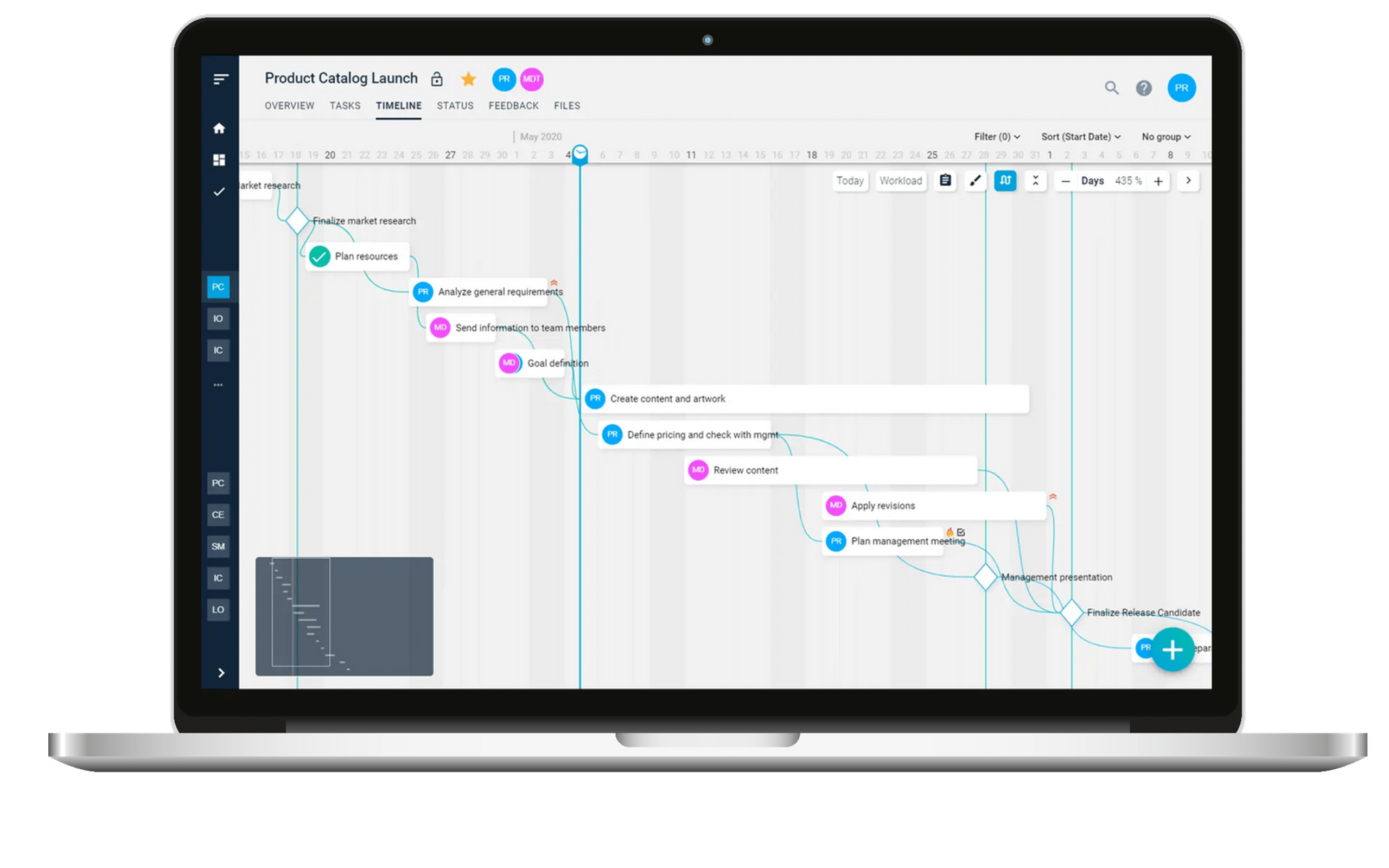Why project management and marketing absolutely belong together

How do project management and marketing fit together? Marketing stands for creativity and freedom. Project management, on the other hand, stands for fixed rules, structures and classic processes.
And yet every marketing department has numerous projects to manage every year. Every marketing year starts with budget planning, which is derived from the corporate strategy and the sales goals of a company.
The marketing plan as a solid basis
The individual marketing measures must be carefully planned. This can be structured according to regional or functional topics, or simply channel-related. For example, a marketing plan is created for specific regions or for specific portfolio items. This plan is divided into sub-topics such as webinars, homepage, landing page, SEO, SEA, trade fairs and events, partner management, press and other elements from the marketing mix.
For each of these elements, direct costs need to be planned, which are generated by third-party providers such as agencies, booth builders, printers and the like. Here, it is important to have a solid plan, but also to compare the actual costs later on, so that a variance analysis makes it transparent where you currently stand. However, it is also important to plan internal expenses and compare them with existing resources, also to see whether the resources are sufficient.
Here, too, it has proven useful to continue this over several years in order to obtain empirical values as to what expenses are incurred in order to implement certain measures.
The entire planning can be viewed from any angle. This is possible through different groupings with intermediate results, but also filters, which allow a dedicated view also of certain sub-projects.
In addition to annual planning, this portfolio management is used for rolling planning, so that it is always possible to predict what the situation will be at the end of a month, a quarter or the fiscal year.
If the results of the respective campaigns and measures are then made available from the CRM system, key figures such as cost per lead and the efficiency of individual measures can be analyzed in detail. This, in turn, is of elementary importance in order to be able to initiate the right measures for the right target group in the next planning round.
Efficient project management in marketing
Once the planning has been created, the projects can be actively managed. This means that the individual tasks for implementing the project can be created and scheduled. The assignment of tasks to the implementing persons is important so that each team member knows what is to be done and when. This is the only way to avoid constant meetings with coordination and thus increase efficiency in the team.
Optimally, the direct costs (booth builders, agencies, …) can be calculated in each project, but also the time expenditures can be planned. This makes it transparent which internal expenses are necessary to implement such a project.
Through the time recording and account assignment of the costs to the project, the project manager receives an up-to-date plan-actual comparison at any time and thus has the necessary control over the cost situation in the project. The integration of all this data with the accounting data and controlling system played a very important role. Bidirectional interfaces to the ERP as well as the CRM system are indispensable.
Tasks serve as a worklist for each individual, so that everyone knows which tasks need to be completed on a daily basis. The results are documented in the tasks so that existing knowledge can also be accessed in subsequent projects. Communication on tasks can be supplemented by a comment and chat function, so that collaborative processes can be designed easily.
Tasks and projects can also be observed by the employee, which helps to be informed about everything that is happening in the project at any time. In each task, it should be possible to organize and structure them in the form of checklists or subtasks. By simply checking them off, progress can thus be quickly determined and made transparent.
Conclusion
In conclusion, a professional project management solution must be able to do more than most CRM or marketing tools provide today. Only the high integration into existing ERP and CRM systems results in a rounded picture with a good user experience for all parties involved.
About the author


